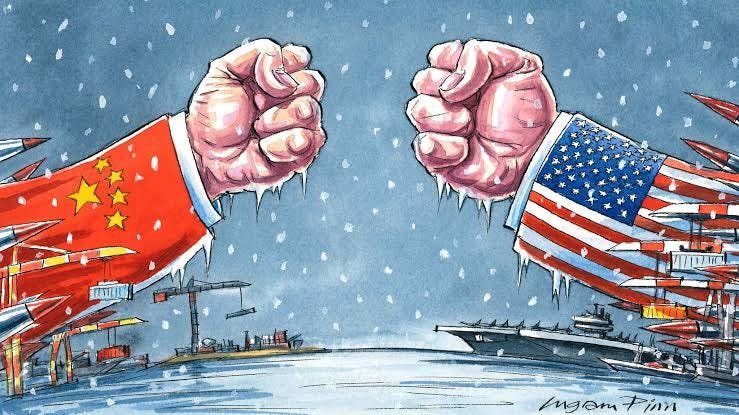The global economy, which has long been characterized by its interconnectedness, is undergoing a dramatic shift in recent years, as escalating trade tensions between major economic powers reshape the landscape of international commerce. In 2025, the dynamics of trade and economic relationships are in a state of flux, with the United States, China, the European Union, and other economic heavyweights embroiled in a series of trade disputes, tariff wars, and rivalries that are testing the foundations of the global economic order.
At the heart of these trade conflicts remains the ongoing rivalry between the U.S. and China. Despite various efforts at negotiations and agreements, issues surrounding tariffs, intellectual property, and trade imbalances continue to divide these two economic giants. These disputes are not isolated to bilateral relations, however. Many other nations are now reassessing their own trade policies, reflecting a broader trend toward protectionism and economic nationalism. Countries across the world are taking a more cautious approach to free trade agreements, re-evaluating existing treaties, and imposing tariffs to safeguard their own domestic industries.
One sector where these tensions are particularly pronounced is in technology. The U.S.-China conflict has expanded into a fierce battle for technological supremacy, especially in fields like 5G networks, semiconductor production, and artificial intelligence. Both nations view these areas as critical to their economic future and global influence, leading to high-stakes competition and growing fears about the security and control of technology. The outcome of this technological rivalry will have ripple effects far beyond the two countries, as it has the potential to shape the next generation of industries and determine which countries will lead in global innovation.
As these rivalries intensify, countries are increasingly focused on self-sufficiency. The desire to protect national industries, reduce dependency on foreign markets, and preserve economic sovereignty is driving nations to reconsider their global trade strategies. This inward turn, while often framed as a response to economic pressures, could lead to the fragmentation of the global economy. International trade, once marked by a shared commitment to free movement and cross-border cooperation, is at risk of splintering into regional blocs and isolated trade pacts. The fragmentation of global supply chains is already visible in industries like electronics, where companies are increasingly shifting production away from global hubs in favor of local or regional manufacturing to avoid potential tariffs and supply disruptions.
The growing trend of economic nationalism is also challenging the effectiveness of international organizations like the World Trade Organization (WTO), which has long been tasked with mediating trade disputes and promoting multilateral cooperation. As trade disputes become more complex and entrenched, the WTO and similar bodies are facing mounting pressure to adapt to the changing landscape. However, the organization\'s ability to address the emerging challenges of modern trade—ranging from digital trade and data privacy to national security concerns over technology—remains uncertain.
The implications of this new era of economic rivalries extend far beyond trade tariffs and market access. The shift toward protectionism and economic isolationism poses significant risks to global growth, particularly in developing economies that rely on open markets and international trade for prosperity. Fragmented supply chains could lead to higher costs for businesses and consumers alike, while geopolitical tensions could further destabilize regions already struggling with economic or political uncertainty.
In the long term, the rise of economic nationalism in 2025 could lead to a world where global trade is less about open cooperation and more about strategic self-interest. While free trade has long been the bedrock of the global economy, this new era suggests that the future of international commerce will likely be more fragmented, with countries choosing to prioritize their own economic security over global cooperation. As nations grapple with these shifting dynamics, it remains to be seen how the global economy will adapt, and whether international institutions will be able to keep pace with the changing realities of global trade.


















Elizabeth
Lol
monica
Nice one
IDDRISU ABDUL WARIS
Great one
Samuel Boafoh
2025 could lead to a world where global trade is less
Erry123
Good
Samforex
Good
Fausta
Good
hossman
Ok